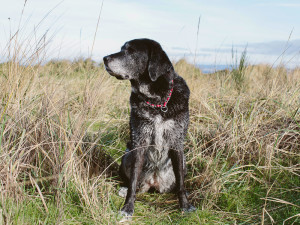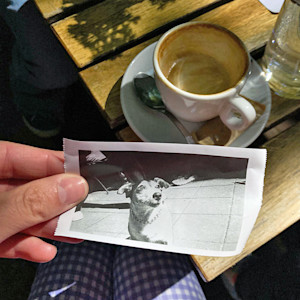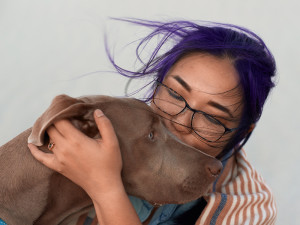I’m Grieving, Please Stop Asking Me When I’ll Get Another Pet
How to honour a pet’s death and support a grieving loved one
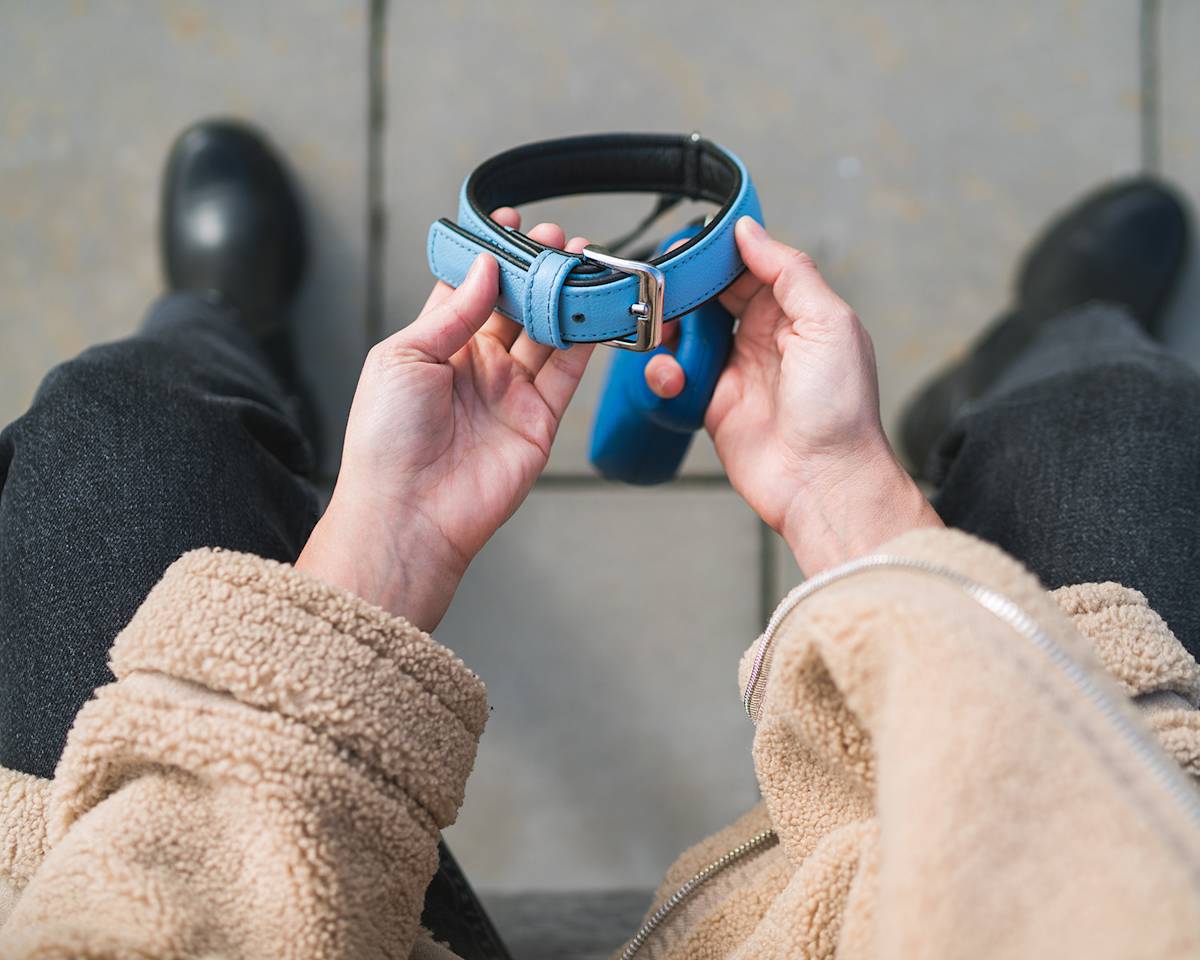
Share Article
The first pet we had as a family was a Collie cross called Flossy. We got her when I was three, and she passed away when I was 17. Her death wasn’t unexpected, but that didn’t make it easier. Flossy was family, and she’d spent more time in our home than some relatives. We didn’t get another dog for a long time – it just didn’t feel right. So when people asked, “Will you get another one?” it felt a bit dismissive, like a betrayal. We needed time to grieve, but many people (especially non–pet parents) didn’t seem to understand.
For anyone who has experienced the heartache of losing a pet, you’ll know that the grief is real and often deeply confusing. This article explores why pet loss is so difficult to navigate and why one of the most common responses, “Will you get another one?” can unintentionally minimise the pain someone is feeling.

Get (totally free) deals for food, treats, accessories, tech and way more pet parenting must-haves.
Do we grieve for pets in the same way as humans?
Grieving the loss of a pet can be just as intense as grieving a human. Yet many people feel guilty or ashamed for feeling this way. You might catch yourself saying, “I know he was just a dog, but…”
Pets are family. For some, they grow up alongside children and are there for all the big, small and special moments. For others, especially those living alone, a pet is constant companionship.
“There’s an expectation that we should miss a human more,” says BWRT therapist and pet grief counsellor, Julie Woodopens in new tab. “But when I ask my clients, ‘How often did you actually see that family member?’ Unless they lived with them, they likely saw their pet far more often.
“Pets rely on us for everything: feeding, walking and care. We build our routines around them. So it makes complete sense that their absence leaves such a profound gap.”
So, of course, we grieve pets deeply. The only difference is that society doesn’t always give us permission to do so.
The loss of a pet can be difficult to manage
Everyone grieves differently (whether it’s the loss of a person or a pet), and there’s no set timeline for mourning. But losing a pet can be especially complex. After all, they’re an animal… and that’s where some of the difficulty lies.
“Even though we’re known as a nation of animal lovers,” says Julie, “it can still be hard to talk about pet loss. If friends, family or colleagues haven’t experienced it themselves, they might offer sympathy at first but expect you to move on quickly.”
When a person dies, people tend to tread carefully. They’re mindful of their words and gentle with their support. But when a pet dies, the response isn’t always the same. You might hear your pet referred to as “it”, or even face laughter or confusion if you take time off work to grieve.
“While people may understand taking time off after losing a loved one, they’re often less accommodating when it’s a pet,” says Julie. “A colleague might willingly cover a few shifts after a family bereavement, but may not see a pet’s death as reason enough.
“And for the grieving pet parent, explaining the depth of that loss to others can feel impossible.”
How can we grieve for a pet?
“Of course, everyone grieves differently and it is important to allow yourself to grieve when a pet dies, says Julie. “When a human dies we acknowledge their life and death with a funeral. This helps to start the mourning process and move through shock and denial. Sometimes we don't know what to do about an animal.
“Talk about how you feel to friends or family. Do not feel silly or ashamed of grieving. If you have children, encourage them to talk about it. Often the death of a pet is the first experience of loss that a child has experienced.”
Should you get another pet?
After losing a pet, some people may suggest getting a new one right away but that isn’t always the right choice. A new pet won’t replace the one you’ve lost. They’ll have their own personality, quirks and needs, and that adjustment period can sometimes feel frustrating when you’re still grieving. This can make bonding harder and may even cause feelings of guilt or frustration.
There’s no set timeline for when (or if) to bring another animal into your life. Give yourself permission to grieve fully first. A new pet may one day find their own special place in your heart but when that time comes, let it be a decision rooted in love, not pressure.
How to support someone grieving a pet
If someone close to you has lost a pet, it’s natural to want to help but even well-meaning words can sometimes miss the mark. Julie shares how to offer genuine support without unintentionally adding to their pain.
First, acknowledge the grief.
Use their pet’s name and be specific. A simple, “I’m so sorry, [pet’s name] was such a lovely dog/cat,” can mean the world. It shows you see their loss as real, not something small or silly.Avoid minimising the pain.
Try not to say things like, “It was only a dog” or “You can just get another one”. While intended to comfort, these comments can feel dismissive to someone in mourning.Don’t assume your experience is the same.
Instead of saying, “I know how you feel” and sharing your own story, just listen. Every grief journey is different, and what helped you may not help them.Be mindful of spiritual or religious beliefs.
Unless you’re certain, avoid comments like, “They’re in heaven now” or “You’ll see them again at the Rainbow Bridge”. Not everyone finds comfort in these ideas, and they can unintentionally alienate.Let them take the lead.
Don’t assume they’re ready to pack up their pet’s things. If they mention it, gently offer to help but don’t bring it up yourself.Offer quiet, practical support. Sometimes, just being there is enough. Bring a meal, offer to babysit, walk their other pets, or simply sit with them. A small gesture or a kind note can go further than you think.
How can we honour a pet’s memory?
There’s no one way to say goodbye to a beloved pet, but creating a small ritual or keepsake can offer real comfort and help the grieving process.
“Some people find it helpful to hold a ceremony,” says Julie. “It doesn’t have to be a full-blown funeral, though some families choose to do that, particularly if they are burying a small animal. Even a few quiet words, shared memories or lighting a candle can bring a sense of closure.
“Scattering ashes in a meaningful place can also be comforting. Just keep in mind what might happen if you move house: would you be OK leaving that spot behind? If not, consider scattering the ashes in a large plant pot instead. That way, you can take it with you. One client even placed their dog’s collar around the pot as a touching tribute,” says Julie.
“Creating an album is another lovely way to honour your pet. It can bring the whole family together, especially children who might struggle to express their grief. Younger kids can draw pictures, while older ones might write a poem, letter or story. Filling the pages with photos and memories creates a safe space to reflect and can gently ease bottled-up emotions.
“Jewellery made with ashes, fur or feathers is also becoming increasingly popular. Whether worn daily or kept in a safe place, it can be a deeply personal way to keep your pet close.”
Where can you find support and how long does grief last?
“There’s no set timeline for grief, but if it’s affecting your daily life, it might be time to seek support. Unresolved grief can lead to anxiety, depression or coping habits like overeating or drinking,” says Julie.
“Look for a professional experienced in pet loss and emotional wellbeing. Therapies like “BWRT (Brain Working Recursive Therapy) or hypnotherapy can be especially helpful,” says Julie, particularly if you struggle to open up. Both can be done online with qualified practitioners.
In the UK, Blue Cross offers free, confidential Pet Loss Supportopens in new tab via phone, email, webchat and a Facebook group, so you can talk in whatever way feels right for you.
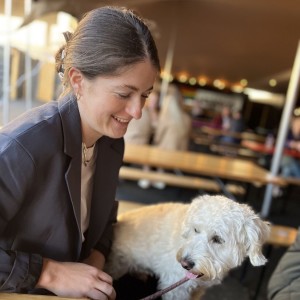
Nuala McHugh
Nuala is a writeropens in new tab with a background in PR. She has worked with brands including Jollyes, Universal Studios, and Amazon. Based in Northern Ireland, she is now doing what she loves most: writing with her clingy cockapoo Bobby by her side.
Related articles
![Portrait Of Large, Senior, Mixed Breed Dog On Beach]()
10 Tips for Grieving a Pet
We asked five grief experts how to cope with feelings of guilt after we lose a pet
![A hand holds a black and white picture of a dog]()
12 Meaningful Ways to Memorialise Your Pet With Their Ashes
From diamond keepsakes to plantable urns – celebrate your pet’s memory in meaningful ways
![person hugging their dog on a sofa]()
40 Percent of Brits Think They Should Get PTO When Their Pet Dies
The death of a pet is a heartbreaking time. A new poll shows Brits would like their workplaces to recognise that
![man holding dog lead and collar]()
What to Do, Practically, When Your Pet Dies
It might not be something you ever want to think about, but planning ahead will be a help when the time comes
![Woman with purple hair kissing the face of her chocolate brown hound dog]()
8 Comforting Thoughts to Help You Through the Death of Your Pet
There’s no guidebook to grief and loss – but these kind words will help
